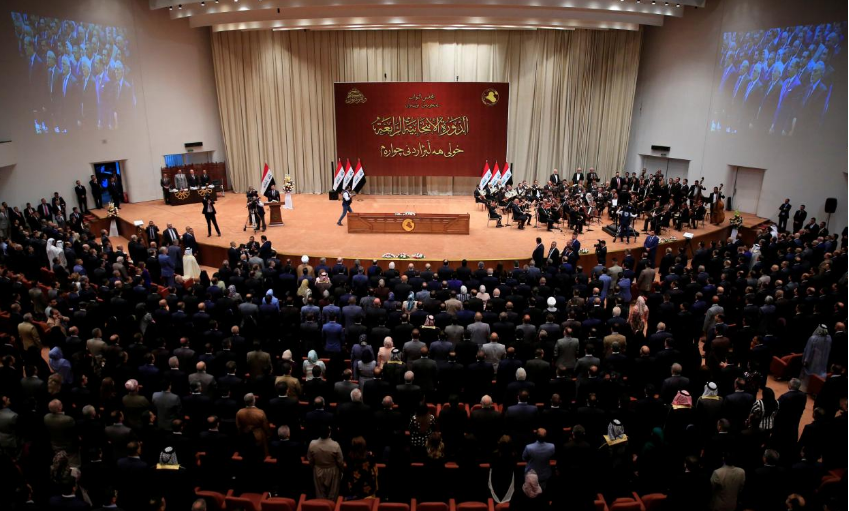
BAGHDAD (Reuters) – Iraqi lawmakers who met this week for the first time since a May election and are still struggling to form a new government, decided on Tuesday to put off their next meeting until Sept. 15, having failed to elect a parliament speaker.
Naming a speaker and two deputies is the first major step towards establishing a new government, with lawmakers still trying to determine which of competing blocs had the most seats.
An alliance backing Prime Minister Haidar al-Abadi and a populist Shi’ite cleric has been competing with a rival bloc backed by Abadi’s predecessor Nouri al-Maliki and an Iran-backed Shi’ite armed group.
After parliament met on Monday for the first time since the election, its temporary leader said it would remain in session until Tuesday. But lawmakers failed to reach a quorum on Tuesday and agreed to return in 11 days.
On Sunday, lawmakers backing Abadi and cleric Moqtada al-Sadr announced they had managed to form an alliance that would give them a majority bloc in parliament.
Hours later, however, a group led by Maliki and militia commander Hadi al-Amiri responded by saying it had formed its own alliance that would be the largest bloc. It said it had persuaded some lawmakers to defect from the rival bloc.
The power struggle reflects division within Iraq’s Shi’ite majority and the competing influence of Iraq’s two main allies, the United States and Iran, which despite being enemies on the wider regional stage both backed the Baghdad government in a 2014-2017 war against Islamic State.
Amiri and Maliki are Iran’s two most prominent allies in Iraq, while Abadi is seen as the preferred candidate of the United States.
Sadr led an anti-American Shi’ite militia during Iraq’s 2003-2011 US occupation and sectarian civil war. He now campaigns against corruption and portrays himself as a nationalist who rejects both American and Iranian influence.
Reporting by Raya Jalabi; Editing by William Maclean and Peter Graff.




